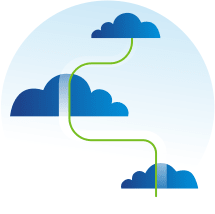Tag: Comparison
What Is the Difference Between MySQL and MariaDB?
Many database solutions are available today, and MySQL and MariaDB are some of the best ones you can use. However, while they share a lot of similarities, such as syntax and architecture, there are some key differences you should keep in mind, including performance, licensing, and support, among others.
AlmaLinux and Rocky Linux, both Linux operating systems compatible with Red Hat Enterprise Linux (RHEL), offer virtually the same features. Let’s discover the difference between the two OSes and which one could be the OS that’s better for you.
PHP 7 vs PHP 8: A Comparison
The team behind the release of PHP 8 boasts in their announcement of better performance, better syntax, and improved type safety. PHP 8 is faster than PHP 7, the syntax requires less code, and typing is better supported. These three improvement categories provide a powerful major version release of PHP.
Cloud Servers vs Physical Servers: A Comparison
Choosing the right hosting environment is essential in positioning a business for successful growth. Companies operate differently based on clientele, the need to process information/orders, and how quickly market adaptation changes are needed. The common thread is the necessity of being digital to survive in today’s economy. Eventually, you’ll reach the crossroad of comparing a cloud server to a physical server to determine your best hosting environment.
MobX vs Redux: A Comparison
MobX is a testing library that makes state management scalable and simple using transparently applying functional reactive programming (TFRP). This type of programming helps to maintain the state's consistency. It works on the principle that everything that can be determined from the application state is deduced automatically.
What is the Difference Between NGINX and Apache?
When comparing NGINX vs Apache Web Server, developers should consider the advantages and disadvantages of both offerings. The needs of your website or applications will determine which of the two pieces of webserver software to choose.
CentOS vs AlmaLinux: A Comparison
AlmaLinux is a relatively new operating system meant to act as a CentOS replacement. How did AlmaLinux come to be? RedHat, the company that created and maintains RedHat Enterprise Linux (RHEL), announced on December 8th, 2020, that CentOS would be repurposed to CentOS Stream. CentOS Stream now acts as an upstream testing platform where new and updated software will first be deployed and tested before being released to RHEL users.
TLS vs SSL: A Comparison
What is Transport Layer Security (TLS)?
Transport layer security (TLS) is another security protocol designed for privacy and data security among Internet communications. It encrypts communication between web apps and servers and is also used to encrypt email, messaging, and voice over IP (VoIP).
What is Desktop-as-a-Service?

Introduction
As firms advance towards a more modern infrastructure, the Desktop-as-a-Service (DaaS) model is becoming an increasingly popular cloud-based system. Desktop-as-a-Service is a multi-tenant, cloud computing solution in which a service provider furnishes a virtual desktop to an end-user over the internet. A provider typically manages the infrastructure, including the security updates, available desktop applications, data storage, and backups. In specific instances, DaaS users manage these services individually. According to Gartner via Workspot:
Why Choose a VMware Cloud?

If you have been in the hosting industry for some time, you most likely had to upgrade your hosting package or resize your server at some point. As your business grows, so do the resources needed to run that business. Over the years, someone has most likely recommended a private cloud solution to you. You probably asked yourself why you would need a more expensive private solution like VMware cloud when you have a powerful VPS server or Dedicated server that is perfectly capable of handling your existing traffic.
Our Sales and Support teams are available 24 hours by phone or e-mail to assist.

